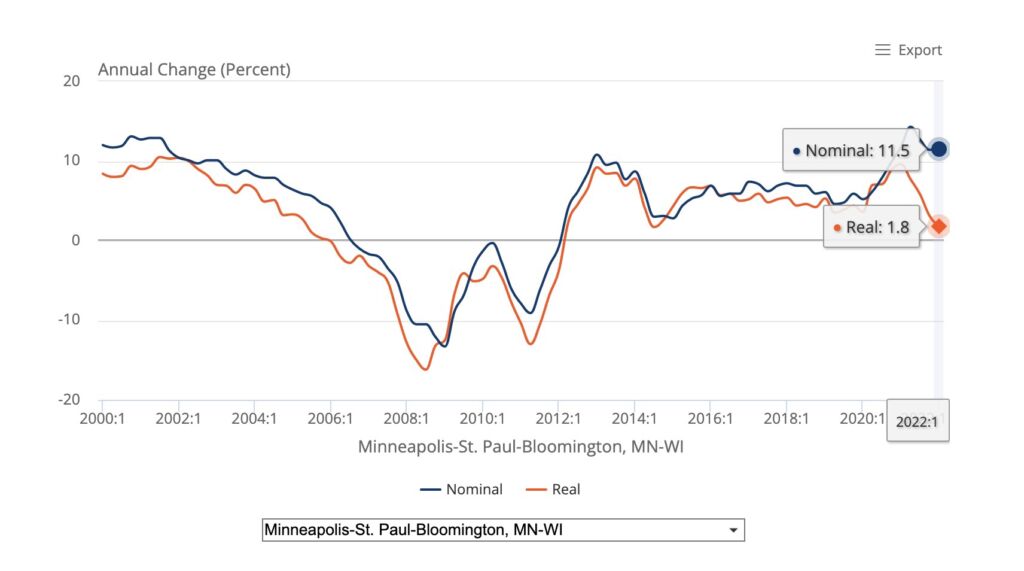A new report shows why lawmakers should focus on improving the housing supply
According to the Havard Joint Center for Housing Studies, the median house price has risen about 12 percent in the Twin Cities between Quarter 1 of 2021, and Quarter 1 of 2022. And the income needed to purchase a median house is now $104,000. This is over 20 percent more than the median household income in the Twin Cities.

Moreover, after accounting for income, the median house in the Twin Cities cost 4.4 times as much as the household median income as of 2021. This is up from 3.9 times in 2020, and 3.4 times in 2019.
Compared to other metropolitan areas, the Twin Cities does not rank too unfavorably. However, that is not necessarily news to celebrate. Rising housing prices present a significant burden on households through higher rental or mortgage prices. The average household is priced out of home ownership when a lot of money is needed to afford a house.
Building more houses is the only way out
According to Minnpost,
Despite the bad news for affordability, the report found some reason for hope. Housing production, which lagged demand significantly since the Great Recession, has picked up in recent years, though the increased cost of building materials and labor has made building affordable housing a challenge.
The mismatch between supply and demand in Minnesota is putting pressure on housing in Minnesota at all levels, but especially for the lowest income households, said Anne Mavity, the executive director of Minnesota Housing Partnership. Minnesota is seeing an accelerated increase in evictions and an acute need for emergency rental assistance, Mavity said.
While new housing is under construction, it’s not going up at fast enough rate to solve some of the long-term supply and demand issues. And it’s especially not being built at a rate fast enough to help solve housing affordability issues for Minnesotans on the lower end of the income spectrum.
Analysis from the Minnesota Housing Partnership finds Minnesota needs to build an additional 10,000 new units per year in order to make up for the lack of housing produced during the Great Recession.
American Experiment has always stressed that the only way to address the housing crisis is to build more houses. Improving supply would lower pressure on prices since people will be competing over more houses.
This report should be a wake-up call for lawmakers in the Twin Cities, on just how urgent addressing the housing crisis is.